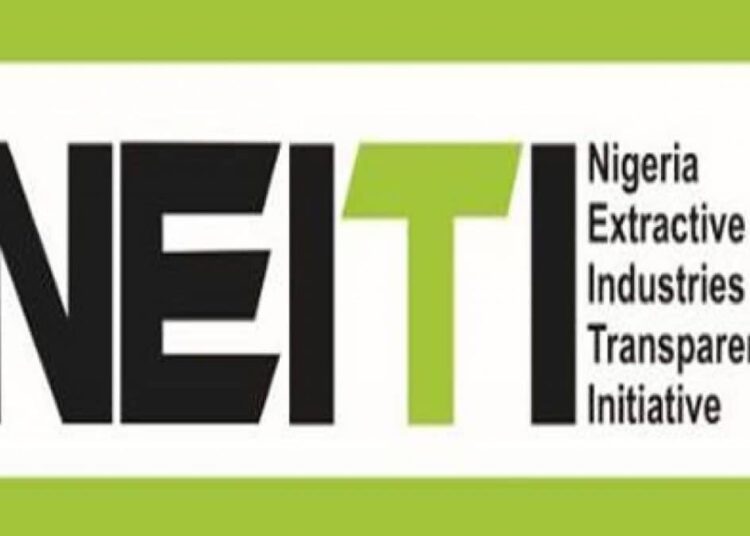Oil and gas companies in the country owe the federation a whopping debt of $6.071 billion and N66.4 billion in unpaid taxes and royalties, the latest Nigeria Extractive Industries Transparency Initiative (NEITI) report has shown.
Oil companies’ liabilities rose to $6.175 billion as of June 2024, according to an audit of the petroleum industry by the Nigeria Extractive Industries Transparency Initiative (NEITI).
This is as the federal government said it relies on the NEITI yearly reports for policy direction because of their role in promoting trust and accountability and encouraging investments in the extractive sector.
These debt liabilities were revealed during the public presentation of the NEITI 2022-2023 Oil and Gas Reports held in Abuja on Thursday.
Data from the NEITI report indicated that the liabilities include $6.071 billion and N66.4 billion in unpaid royalties and gas flare penalties owed to the Nigerian Upstream Petroleum Regulatory Commission (NUPRC) by August 31, 2024.
Additionally, there are outstanding petroleum profit taxes, company income taxes, withholding taxes, and VAT owed to the Federal Inland Revenue Service (FIRS) amounting to $21.926 million and N492.8 million as of June 2024.
The 2022/2023 oil and gas industry report, presented yesterday in Abuja, also revealed a nine per cent drop in industry revenue in 2023, with $16.467 billion recorded compared to $18.106 billion in 2022.
In terms of production, oil output increased by 9.5 per cent in 2023, reaching 537.57 million barrels, up from 490.94 million barrels in 2022. The report highlighted that the highest production volume over the past decade was 798.54 million barrels in 2014, while the lowest was 490.94 million barrels in 2022.
The NEITI report disclosed a total loss of 7.68 million barrels of crude oil in 2023 due to theft and measurement errors, a significant drop of 79 per cent from the 36.69 million barrels lost in 2022.
Additionally, 153.44 million barrels of crude oil production were deferred in 2023, with companies like SPDC (39.13 million barrels), TEPNG (6.07 million barrels), and TUPNI (3.5 million barrels) being the most affected.
The report disclosed that the government paid N3.01 trillion as petrol subsidy in 2023 compared to N4.71 trillion paid in 2022.
It stated that a total of 23.54 billion litres of PMS (premium motor spirit) were imported into the country in 2022, while 20.28 billion litres were imported in 2023. This represents a reduction of 3.25 billion litres, or a 14 per cent decline, following the removal of the subsidy.
“A detailed 10-year trend analysis (2014–2023) shows that the highest annual PMS importation into the country, 23.54 billion litres, was recorded in 2022, while the lowest, 16.88 billion litres, was recorded in 2017.
A total of N15.87 trillion was claimed as under-recovery/price differentials between 2006 and 2023, with the highest amount, N4.714 trillion, recorded in 2022”.
In his keynote address the secretary to the government of the federation (SGF), Senator George Akume, who is also the co-chair of the NEITI Board, said NEITI’s work strengthens public trust in the extractive industry, helps entrench good resource governance, and fights leakages and corruption in the sector.
“NEITI is an indispensable partner in showing Nigerians how their resources are generated and managed,” he said, adding that it enables the government to shape policy responses, especially in the oil and gas industry.
According to the SGF, the credibility of the NEITI report is underscored by its ability to access and assess both data in the public and private sectors independently with no interference by the authorities.
“The figures reflect the reality in the oil and gas sectors,” Akume asserted.
For his part, the executive chairman of the Economic and Financial Crimes Commission (EFCC), Ola Olukayode, stated that the EFCC, as an anti-corruption agency, has always cooperated with NEITI in promoting transparency and accountability in the extractive industry.
According to him, once the NEITI Report is released, the anti-graft agency takes its recommendations seriously regarding where financial crimes have been committed and other infractions.
“I recently ordered N1 billion remitted to federal government coffers due to the work of NEITI,” he said.
In his address, the executive secretary of NEITI, Dr Orji Ogbonnaya Orji, described the public presentation as a significant milestone in the ongoing efforts to foster transparency, accountability, and good governance within Nigeria’s extractive sector.
“This report, produced by NEITI, comes at a critical time when the nation is intensifying its reforms in the oil and gas sector. The report provides valuable insights that will help guide policy, encourage robust public debate, and ultimately improve governance in managing our natural resources.
The importance of this report cannot be overstated. It is an authoritative document that provides comprehensive data and information on revenues, governance structures, operations, and compliance within the oil and gas sector for the 2022/2023 period. The report, as always, remains a vital tool for identifying leakages, improving revenue collection, and promoting resource management reforms.”
Stating the process in arriving at the report conclusions, he said it followed a meticulous and transparent process, in line with the global Extractive Industries Transparency Initiative (EITI) standards.
“A rigorous, multi-stakeholder approach was adopted, involving extensive collaboration with government agencies, extractive companies, civil society, and indigenous consultants. We ensured that all data was collected, validated, and reconciled openly and transparently.”
The NEITI boss urged all stakeholders—government agencies, civil society organisations, the private sector, the media, and the public—to use the information contained herein as a tool for civic engagement, constructive dialogue, and meaningful public debate.
“Your role in ensuring that the recommendations in this report are implemented is crucial to achieving the desired impact.
“The report is not just a document; it is an invitation to action. We must collectively ensure that the findings and recommendations are translated into policies that will drive change in Nigeria’s oil and gas sector, ensuring that the wealth derived from our natural resources benefits all Nigerians,” he concluded.
On his part, the chairman, House of Representatives Committee On Petroleum Resources (Downstream),
Hon. Ikenga Imo Ugochinyere said NEITI Reports on the Oil and Gas Industry have, over the years, served as a powerful tool in providing valuable insights into the industry’s operations and revenue flows.
”I cannot overemphasise the critical role that transparency and accountability play in effectively managing our nation’s extractive industries, especially given the sector’s current situation. The 2022 and 2023 Oil and Gas Industry Report, with the addition of reports on the Mining sector, is laudable and will not only enhance our understanding of the interconnectedness of these industries but also provide valuable insights that can drive strategic investments and policy decisions.
He noted that the House was in the process of amending the NEITI Act to grant it more financial autonomy, including keeping 4 per cent of recovered funds and the power to prosecute offenders.
Envoys from Belgium and Canada, as well as representatives from oil and gas stakeholders, both private and public, were represented at the event.





